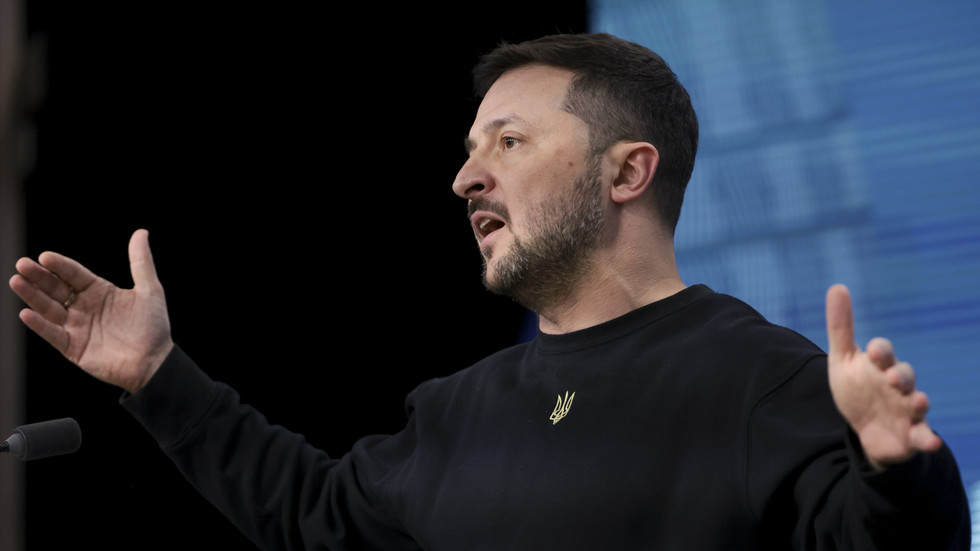Ukrainian President Vladimir Zelensky recently found himself at the center of a controversial discussion regarding Ukraine’s defense strategy, particularly in regard to nuclear weapons and NATO membership. In a press conference held in Brussels alongside NATO’s new Secretary General, Mark Rutte, Zelensky denied allegations that Ukraine was seeking to develop nuclear weapons. This clarification was significant, considering the juxtaposition of his earlier remarks that suggested Ukraine faced only two paths for security: acquiring nuclear arms or integrating with NATO. Despite the contradiction, Zelensky emphasized that his reference to nuclear options was misinterpreted and insisted the only viable route for Ukraine was NATO membership.
Earlier that same day, Zelensky articulated a more alarming perspective when speaking with former U.S. President Donald Trump, asserting that Ukraine’s defense might hinge on either obtaining nuclear weapons or securing membership in an effective military alliance. His comments echoed a sense of urgency and desperation for Ukraine to find solid security assurances amidst ongoing tensions with Russia. Historically, Ukraine inherited nuclear weapons after the Soviet Union’s dissolution but relinquished its arsenal through the 1994 Budapest Memorandum, which promised security assurances from major powers. Zelensky’s statements highlight that this framework is under scrutiny as the country faces current geopolitical threats.
Despite Zelensky’s denouncement of nuclear ambitions in his later remarks, he has consistently voiced regret over the dismantling of Ukraine’s nuclear capabilities prior to the escalation of conflict with Russia in early 2022. His position reflects a growing sentiment among some Ukrainians who feel vulnerable without an independent nuclear deterrent. There is an underlying frustration with the international security guarantees that have not proven effective in protecting Ukraine, particularly in light of Russia’s aggressive actions.
Zelensky’s policy stance underscores a broader shift in external perceptions of military alliances. His insistence on NATO as the sole alternative stems from Ukraine’s view that other forms of alliances are ineffective against significant threats. The situation poses a dilemma not only for Ukraine but for NATO and its member states, pushing them to reassess their security strategies in the face of a resurgent Russia. Zelensky’s comments come amidst a recalibration of NATO’s own defense policies and its commitment to collective defense.
The historical context of Ukraine’s nuclear weapons situation adds a layer of complexity to the current discourse. The 1994 Budapest Memorandum, although seen as a crucial step toward disarmament at the time, now appears to leave Ukraine at a disadvantage, particularly as it confronts military aggression. Zelensky’s remarks serve as a poignant reminder of shifting security paradigms and the inadequacy of existing assurances in the current geopolitical climate. As military threats evolve, the concept of nuclear deterrence remains a provocative topic for discussion, reflecting an urgent need for serious dialogue about Ukraine’s security.
In conclusion, Zelensky’s dual messages highlight the intricate balance between aspiration and reality in Ukraine’s security strategy. While his government’s hopes of joining NATO are clear, the specter of nuclear weapons continues to loom large in public and political discourse. As Zelensky navigates these complicated waters, he faces pressure both domestically and internationally to secure a path forward that ensures Ukraine’s sovereignty and safety. Whether through strengthening relationships with NATO or reconsidering the prospects of nuclear capabilities, Ukraine stands at a critical crossroads in its quest for lasting security against its formidable neighbor, Russia.

